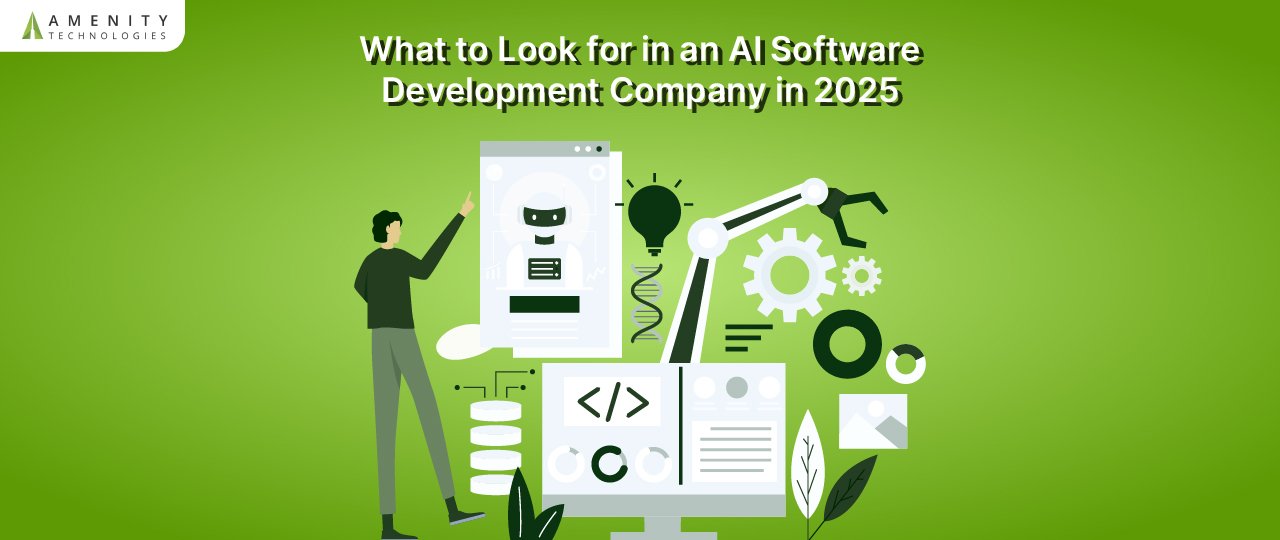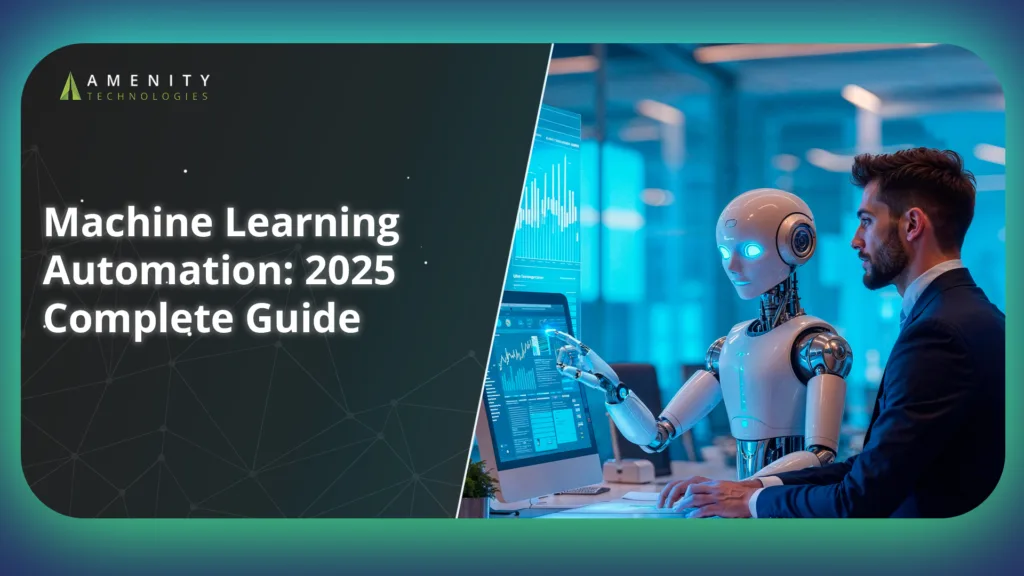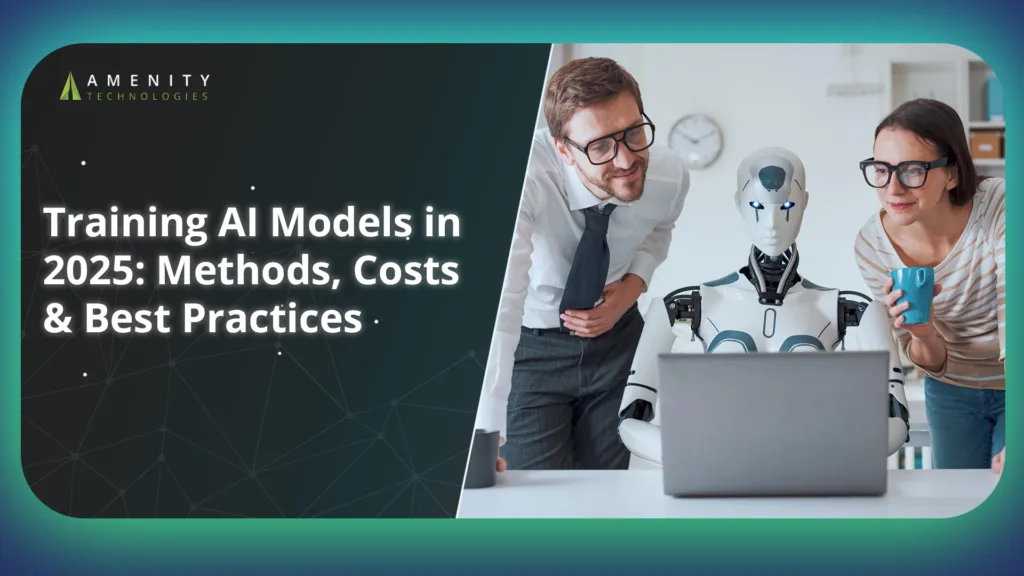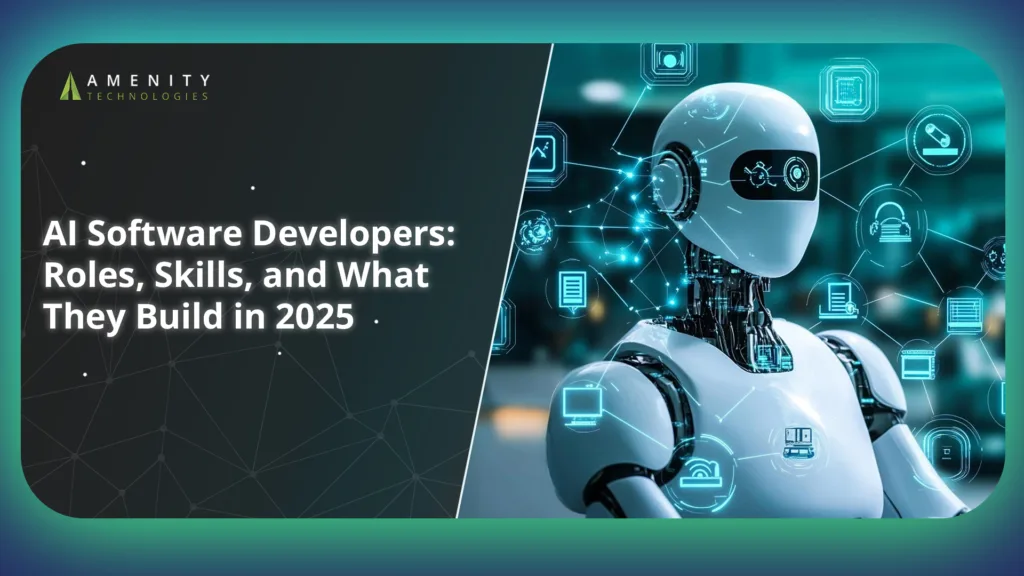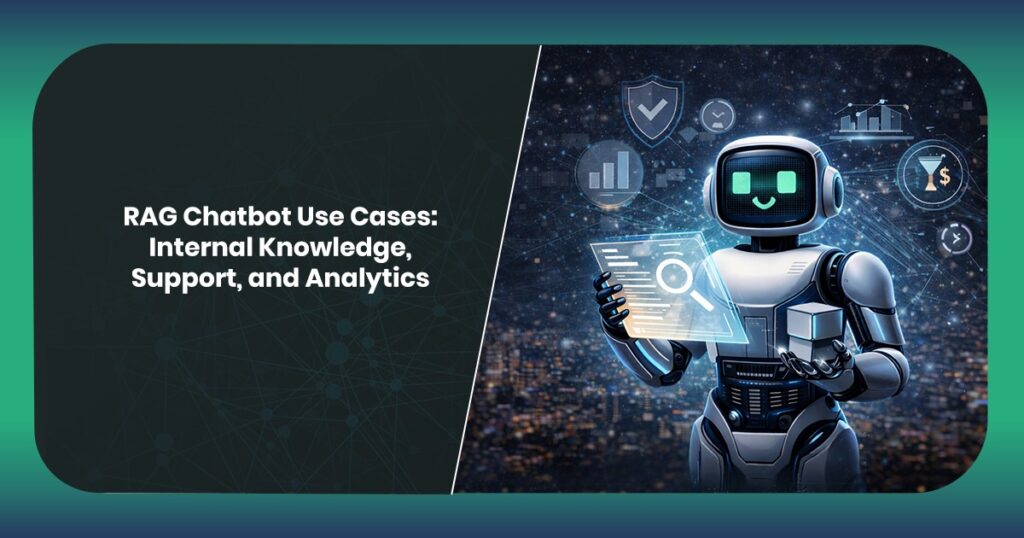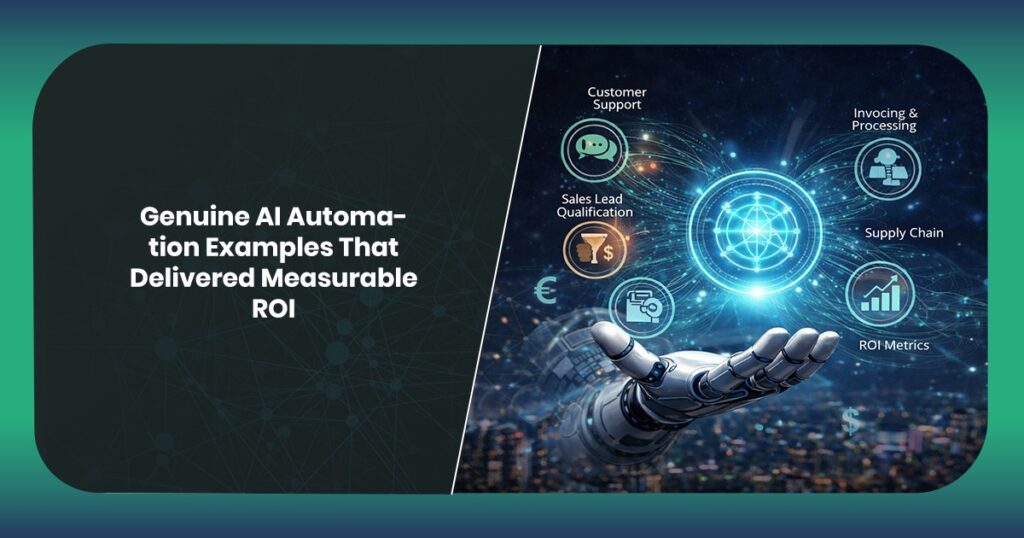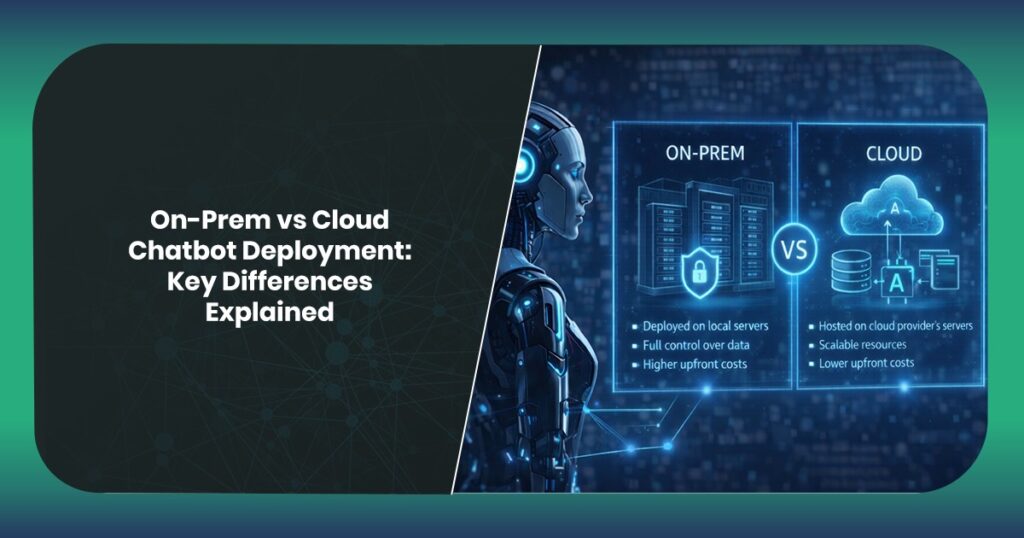Is your business ready to turn AI into measurable results, or will your investment stall in development? How do you choose an AI software development company that delivers solutions built for growth, reliability, and transparency? Many organizations rely on enterprise AI software companies to implement scalable and secure systems, but not every vendor can translate technology into tangible outcomes. The right partner ensures advanced AI integrates seamlessly with workflows, maintains ethical standards, and provides ongoing support. This guide highlights what to look for in a partner that can transform AI initiatives into real business value.
What Defines a Leading AI Software Development Company?
A strong AI software development company combines technical expertise, practical experience, and ethical practices. Businesses need partners that can deliver solutions aligned with their operational goals while maintaining long-term reliability. Evaluating a company’s capabilities in multiple areas helps identify vendors that can create measurable business impact.
1. Technical Breadth
Top companies offer experience in machine learning, natural language processing, computer vision, generative AI, and MLOps. This breadth allows them to handle complex enterprise challenges and develop intelligent solutions that support automation and decision-making.
2. Tailored Solutions
Leading firms create custom solutions that fit client workflows and address unique requirements. Off-the-shelf tools often fail to capture the nuances of enterprise operations, whereas customized approaches ensure higher adoption and efficiency.
3. Scalability
Scalable design is critical for businesses processing increasing data volumes. Reliable vendors develop systems capable of expanding without compromising performance or accuracy.
4. Ethical Standards
Transparency, explainability, and regulatory compliance guide the development process. Ethical AI practices reduce operational risks and build stakeholder trust.
5. Continuous Support
Ongoing support maintains AI effectiveness. Leading companies monitor models, retrain as needed, and optimize performance to keep solutions relevant and accurate over time.
Why Vendor Type Matters in AI Partner Selection?
Choosing the right type of AI software development company can determine the success of your AI implementation. Vendor type affects technical expertise, delivery speed, support quality, and the ability to handle enterprise-scale projects. Understanding the differences between firm types helps in aligning your AI strategy with the right partner.
1. Niche Boutiques vs Enterprise Vendors
Niche boutiques specialize in specific AI domains or industries. They often provide deep expertise in areas like natural language processing, computer vision, or generative AI. Their smaller teams allow for quicker adaptation to project needs, close collaboration, and innovative approaches. However, they may lack the infrastructure for very large-scale deployments.
Enterprise AI vendors bring established frameworks, extensive resources, and global delivery capabilities. They are suitable for organizations that need large-scale AI solutions with compliance controls and formalized support structures. These vendors often maintain a portfolio of scalable AI systems for diverse industries, ensuring stability in long-term operations.
2. Onshore vs Offshore Models
Onshore vendors provide closer proximity, easier communication, and faster collaboration, especially for projects that require frequent meetings or rapid feedback cycles. Offshore vendors can offer cost efficiency and access to specialized talent but require strong project management and clear documentation to prevent delays. Selecting the right model depends on project complexity, budget constraints, and the need for real-time coordination.
3. Industry-Specific Experience
Vendors with direct experience in your industry understand the challenges, regulations, and operational workflows that generic AI solutions may not address. For instance, a company experienced in healthcare will know how to handle patient data securely, implement NLP solutions for medical records, and comply with HIPAA or other regulatory standards.
4. Product vs Engineering-Centric Teams
Product-centric teams focus on delivering user-friendly AI applications that solve defined business problems. Engineering-centric teams emphasize technical sophistication, optimizing performance, and implementing advanced algorithms. A partner that balances these approaches ensures AI solutions are both technically sound and practically usable.
Why Amenity Technologies is the Right AI Software Development Company in 2025?
Choosing the right AI software development company requires more than assessing technical skills. Amenity Technologies combines expertise, industry experience, and long-term support to ensure AI initiatives deliver measurable results.
1. Proven Technical Depth
We employ specialists in machine learning, large language models (LLMs), natural language processing, and computer vision. This allows us to develop solutions ranging from vision-based AI tools for automated image and video analysis to NLP solutions that streamline document processing and customer interactions. Our team also builds and maintains scalable AI systems capable of handling enterprise workloads without performance loss.
2. Enterprise-Grade Delivery
Security, compliance, and measurable outcomes are core to every project. Our team of developers builds systems that meet industry standards, including data privacy regulations and corporate governance requirements. The solutions aim for tangible ROI, not just technical deployment, ensuring enterprises can justify AI investments with clear business impact.
3. Custom AI Solutions
Rather than relying on generic platforms, we develop solutions that integrate seamlessly with existing systems. Our approach ensures that AI tools adapt to the specific needs of an enterprise, improving efficiency and adoption. This includes integration with existing software stacks, APIs, and workflow automation processes.
4. Long-Term Partnership
AI models require continuous monitoring, retraining, and optimization. Amenity Technologies provides structured post-deployment support, performance audits, and updates, ensuring solutions remain effective as business needs evolve. Transparent communication throughout the engagement fosters trust and alignment.
5. Cross-Industry Impact
Amenity Technologies has successfully delivered AI solutions across multiple sectors. In healthcare, our deep learning solutions optimize diagnostics and patient data analysis.
In fintech, we have improved fraud detection and risk assessment. Logistics and manufacturing benefit from predictive analytics and vision-based AI tools that enhance operational efficiency. This cross-industry experience ensures that solutions are adaptable and effective in various operational contexts.
Conclusion
Selecting the right AI software development company in 2025 goes beyond evaluating technical skills. Businesses need partners that deliver secure, scalable, and ethically designed solutions while providing ongoing support.
Choosing a vendor with experience in enterprise AI software company deployments, cross-industry expertise, and proven deep learning solutions ensures that AI initiatives generate measurable business results.
Amenity Technologies combines advanced technical capabilities with long-term collaboration, helping organizations implement scalable AI systems, optimize operations, and maintain compliance. The right partner transforms AI from a project into a continuous advantage, providing tools and expertise that drive lasting operational improvements.
FAQs
1. What technical skills should an AI software development company offer?
A strong AI software development company should have expertise in machine learning (ML), natural language processing (NLP), computer vision, generative AI, and MLOps. Experience with deep learning solutions and vision-based AI tools ensures they can handle complex enterprise challenges.
2. Why is explainability vital in AI partnerships?
Explainable AI builds trust and ensures compliance with regulations. Transparency allows enterprises to understand how models make decisions, reducing operational risks while maintaining ethical standards.
3. How do I validate a company’s AI expertise?
Reviewing case studies, client references, and certifications demonstrates a vendor’s technical depth. Examining past implementations of scalable AI systems and NLP solutions provides insight into real-world performance.
4. What’s the difference between boutique firms and enterprise AI vendors?
Boutique firms focus on specialized AI domains and offer agility in project execution. Enterprise vendors provide robust infrastructure, compliance frameworks, and resources to manage large-scale AI enterprise partnerships.
5. What should post-launch AI support include?
Effective post-launch support includes model monitoring, retraining, optimization, performance audits, and updates to governance policies. Continuous support ensures intelligent software builders maintain accuracy and relevance over time.
6. Which industries gain most from AI partnerships?
Industries such as healthcare, fintech, manufacturing, retail, and logistics benefit from AI adoption. Solutions like vision-based AI tools, NLP solutions, and deep learning solutions optimize operations, reduce costs, and improve decision-making.

